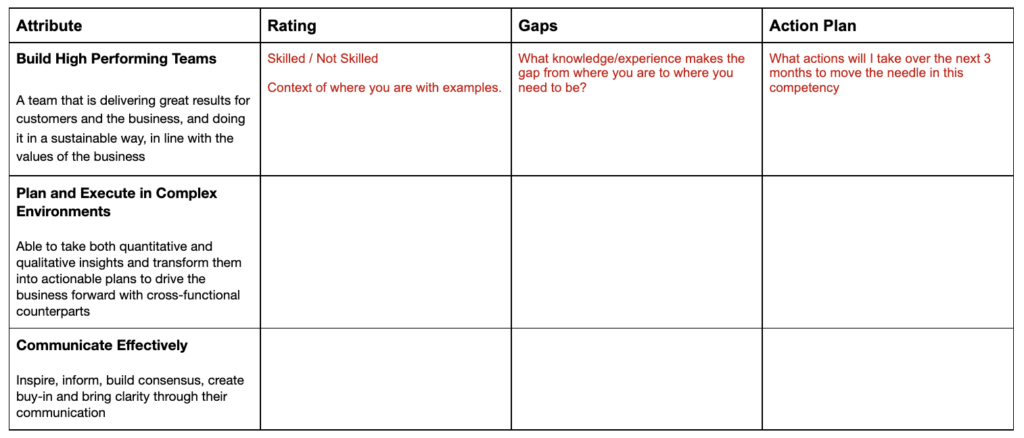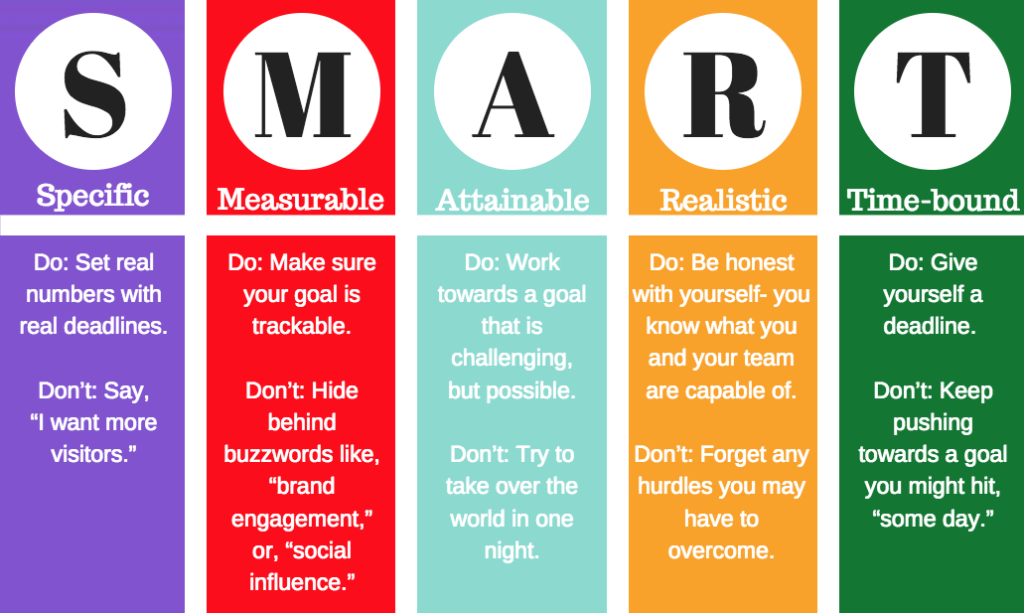The start of my journey in people management was unintentional.
I was interested in solving problems, seizing opportunities, and building operating systems. Eventually that passion led me to become the other half of a two-woman business in digital innovation. That business grew and suddenly I found myself leading more and more people.
I didn’t need to get promoted. I didn’t have to convince anyone that I was ready. And if I did, I would not have passed the test. Because frankly, I wasn’t ready.
Almost a decade later, I have learned my fair share of leadership lessons and made leaps of progress. Today, I head a much larger organisation with seriously talented and ambitious people. I am proud of how I show up as a leader. But, I am still honing my craft every day.
Helping people build their careers has become one of my favourite things about this role. I (try to) meet every single individual in my broader team at least once a quarter and one of the questions I get asked most often is:
How can I become a manager?
If you are an individual contributor and have no management experience, it can seem nearly impossible to move into a manager role.
Hiring the wrong manager for a team can be catastrophic, that’s why most hiring managers will opt for experience vs. potential. Without the proven experience, you are asking someone to take a huge chance on you.
The good news is: It’s perfectly possible to make the transition.
I have 3 new managers in my team who were individual contributors with no management experience.
This journey requires a huge amount of reflection and self-awareness, the ability to take candid feedback, smart work on the things that matter, a serious level of commitment, and grit and resilience because you will fail a lot.
My advice for those who want to become a manager is: Build a plan, get buy-in, work relentlessly on it, don’t lose focus. Let’s get really practical about it…
Understand What it Takes To Do The Job
Step number one is knowing what is required.
In my experience, independently of the company you work for, managers need to do 3 things: Build High Performing Teams, Plan and Execute in Complex Environments, and Communicate Effectively.
Of course, there are other things on the attributes list for a great manager. There are also spectrums of competency around each of these.
Ultimately, a great manager will have:
- A team that is delivering great results for customers and the business, and doing it in a sustainable way, in line with the values of the business;
- Be able to take both quantitative and qualitative insights and transform them into actionable plans to drive the business forward with cross-functional counterparts;
- Inspire, inform, build consensus, create buy-in and bring clarity through their communication.
If you are reading this and it doesn’t sit right with you based on what you see in your company, that’s ok. Your organisation might have other expectations from a manager. Talk to the leaders in your business, ask them to boil down their work so you can build a list of core attributes (maybe they have one already!).
Understand Where You Are vs. Where You Need To Be
To create your development plan, start by rating yourself as skilled/not skilled in these 3 areas and/or any other areas you identified in your business.
I have created this simple template to help you start your plan.

- Skilled: You have the theoretical knowledge and the practical experience. If you are skilled, you will have high-impact examples worth sharing in an interview. You will have a framework on how to replicate the success of that example.
- Not skilled: Your experience is either incomplete or non existent in this area. If you have the theory but haven’t applied it in practice, you are not skilled. If you have tried it in practice before, but with no success, that means that you are not skilled yet.
Don’t be scared if you are sitting at ‘not skilled’ for these 3 areas. Everyone needs to start somewhere.
Next, you need to get really clear about what makes the gap from where you are to where you need to be. This is not a laundry list of tasks. It’s the core knowledge and experience blocks missing from your toolkit.
For example, under the attribute ‘Build High Performing Teams’, you will define what are the key building blocks of building a high performing team in your organisation. There will be things such as hiring, mentoring, managing performance, driving accountability etc. If you have never mentored a struggling rep, the gap could be ‘performance management’.
If you are lost in how to define this, work with your manager or a mentor in your organisation. This is one of the most important pieces of the puzzle. If you get it wrong, you will end up working on incorrect things or missing important aspects of the management requirements. Ultimately failing to demonstrate that you are ready to make the move.
I can’t say this enough times: Asking for feedback on your ratings and gaps from key stakeholders for your promotion is critical. If you think you are skilled and your manager doesn’t agree, chances are, you are not skilled. You just have a misaligned expectation of what it is to be skilled in this area.
Common Pitfalls:
- Not having a full understanding of the attributes and depth needed to succeed as a manager in your organisation
- Lack of self-awareness and/or an inflated sense of where you are in each one of the attributes
- Forgetting to highlight the areas where you do have experience so you avoid working on things you already built expertise on
- Not taking the constructive feedback onboard
Make an Action Plan
The final piece of building your development plan is to pick the areas of focus for the next quarter and create your action plan.
The action plan should be made up of SMART Goals (specific, measurable, attainable, relevant and time-bound goals) or OKRs (Objectives and Key Results). This way you can be confident that they are achievable and impactful.

Do not forget to align with your manager and/or mentor to validate your plan. It will do three things:
- ensure you are picking the right projects/initiatives
- highlight potential projects/initiatives you are not aware of
- drive further buy-in on your development.
Working on the wrong plan is a waste of your time, it signals to leadership a lack of business acumen to understand what is important vs. what is not, and demonstrates poor stakeholder management and communication.
Once your plan is ready, set a regular cadence to review it with your manager. I suggest monthly.
Keep this top of mind for you and your key stakeholders. The business will recognise that you are consistently making progress on this and when a new management role opens up, everyone will expect you to apply.
Now it’s time to get working…
Common Pitfalls:
- Building this plan on a silo only to realise the key stakeholders of your promotion don’t buy-into what your gaps and action plan
- Not taking constructive feedback on your gaps well and subsequently working on things that will not help you position yourself as a suitable candidate
- Not measuring the impact of your work and when it comes to interview time, not being able to highlight that your actions led to positive outcomes
Will you succeed?
Nothing can guarantee your success. When we want to achieve great things, we need to be open to trying and failing. That’s why you need grit and resilience.
All you can do is work relentlessly on the right things and get the right people to buy into it.
Over time, you will build these competencies and be in a position where you are skilled across most of if not, all of the manager’s attributes. Additionally, you will have invaluable hands-on experience that many external candidates don’t have. This is a powerful combination.
Manager Competencies + On the Job Exeperience = 🚀
At this stage, when you ask for someone to take a chance on you, it will only require a small leap of faith from them, because you have demonstrated you are already operating at a manager level.